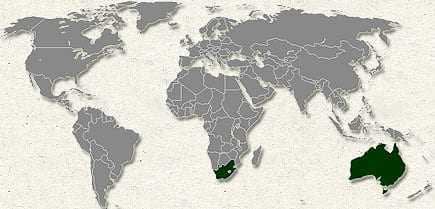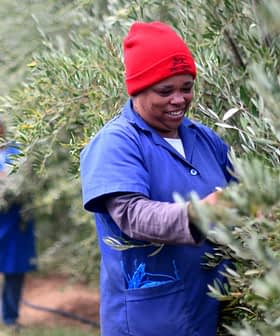
The industry association of South African olive oil producers, has decided to support the adoption of the same olive oil standard recently put into place in Australia.
Andries Rabie, Chairman of the South African Olive Industry Association (SA Olive), said the government in South Africa had established a committee to consider the recommendation.
The Australian Standard for Olive and Olive-Pomace Oils, which was approved in July by Standards Australia, established new voluntary olive oil labelling and chemistry guidelines like no other market’s in the world. Misleading words like “Light” and “Pure” were disallowed and new testing methods were sanctioned to determine olive oil quality and grade.
The International Olive Council, whose member countries produce over 95 percent of the world’s olive oil, criticized the Australian move, calling it a possible trade barrier that would make adulteration easier.
 But the new standard has its supporters. Fellow up-and-coming producers in California, SA Olive, and even the rector of the University of Jaén, Manuel Paras Rosa, have rallied around, according to Australian Olive Association President Paul Miller who plans on forming a “new world alliance” based in part on the new standard.
But the new standard has its supporters. Fellow up-and-coming producers in California, SA Olive, and even the rector of the University of Jaén, Manuel Paras Rosa, have rallied around, according to Australian Olive Association President Paul Miller who plans on forming a “new world alliance” based in part on the new standard.
South Africa makes around 3 percent of the world’s wine, placing it in the top ten producers, but its olive oil production of 1,500 tons is barely on the radar. And with annual consumption estimated by Rabie at 7,000 tons, South Africans account for less than one-quarter of one percent of global olive oil consumption.
Rabie points out, however, that olive oil consumption stood at just 1,800 tons 10 years ago, and the country is considered to be among the rising New World producers that stand to challenge the established ways of the olive oil industry and the long-held dominance of European producers.
“For many years we have known that some EU brands were blending refined oils into their extra virgin to get the price point down,” Rabie told Olive Oil Times, ” but we could never prove this.”
So, like their counterparts in the U.S. and Australia, SA Olive did some testing. “We took 30 samples randomly from retailer shelves. We found shocking results. Only 24 percent were found to be extra virgin according to IOC criteria,” Rabie said.
Rabie’s Willow Creek is the largest olive oil producer in South Africa, with about 280 hectares and 173,000 trees. The estate has been in his family since the late 18th century.
With world olive oil prices scraping along historical lows, countless producers in every region are teetering on the edge of viability. The situation in Australia is particularly dire, according to sources.
Unable to compete against subsidized European producers exporting low-quality, often fraudulent products, New World producers have grown increasingly aggressive. Highly publicized quality tests, standards reform and groups like Miller’s alliance are seen as efforts to turn the tables and even the score.
“If we could sort out the quality, we could level the playing field in South Africa,” Rabie Said, “We therefore decided to support the Australian standard and adopt it here.”








